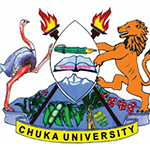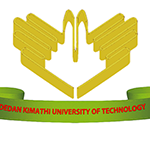Introduction to the Technical University of Kenya:
Basic Introduction
Establishment time: Its history can be traced back to the Kenya Technical College in 1956, and officially became the Technical University of Kenya in 2013.
Institutional nature: Public university.
Geographical location: Located in Nairobi, Kenya.
Historical evolution
In 1949, the Willoughby Report proposed the establishment of a technical college in Nairobi, which led to the establishment of the Royal Technical College of East Africa.
In 1956, the Kenya Technical College was established.
In 1961, the Kenya Institute of Technology was established.
In 2007, it became the Kenya Polytechnic College.
In 2013, it was approved by the then President Mwai Kibaki and officially became the Technical University of Kenya.
School strength
Faculty: It has 1,844 administrative and academic staff.
Curriculum: Provides a variety of degree courses including Bachelor of Engineering, Bachelor of Science, Bachelor of Philosophy, etc., as well as technical diploma courses, covering engineering, applied science, social science and other fields.
International Cooperation: Cooperate with international organizations to provide students with international internship opportunities, such as cooperating with Jiangsu Hairun New Energy Technology Co., Ltd. to provide internships for students majoring in chemistry, materials science and chemical engineering.
Educational philosophy: Adhering to the concept of "providing education and training for the real world", focusing on cultivating students' practical ability and professional skills, so that students can better adapt to social and workplace needs.
Key laboratories and disciplines
Key disciplines: Engineering disciplines are its focus, such as electrical and electronic engineering, mechanical and process engineering, etc.
Key laboratories: The school has multiple professional laboratories to support teaching and research, but there are no particularly well-known national or international key laboratories.
Faculties and colleges
School of Engineering and Built Environment: Including the School of Architecture and Built Environment, the School of Electrical and Electronic Engineering, etc.
School of Applied Science and Technology: There are the School of Biological and Life Sciences, the School of Computing and Information Technology, etc.
School of Social Sciences and Technology: covers the School of Business and Management Studies, the School of Creative Arts and Technology, etc.
School ranking: It is in a leading position in Kenya, especially in the fields of technology and engineering, but there is no clear international authoritative ranking data.
Cost
Tuition: Referring to the general situation of public universities in Kenya, the annual tuition for undergraduates is about 20,000 to 40,000 RMB.
Living expenses: In the capital Nairobi, the monthly living expenses include accommodation, food, transportation, etc., about 2,000 to 3,000 RMB.
Campus environment
Campus size: Located in the central business district of Nairobi, with a superior geographical location.
Architectural style: A fusion of modern and local styles, with modern teaching buildings, laboratories and other buildings.
Supporting facilities: It has complete teaching and living facilities such as libraries, computer laboratories, and sports facilities.
-

Catholic University of Eastern Africa
-

Maseno University
-

St. Paul's University
-

Egerton University
-

Daystar University
-

Chuka University
-

Laikipia University
-

KCA University
-

University of Eastern Africa, Baraton
-

Dedan Kimathi University of Technology
-

Mesoamerican University
-

Istmo University
-

Mariano Galvez University of Guatemala
-

Regional University of Guatemala
-

Galileo University
-

Francisco Marroquín University
-

Rafael Landívar University
-

University of the Valley of Guatemala
-

University of San Carlos of Guatemala
-

Technological Institute of Tlaxcala Plateau
-

Golfo University
-

Technological University of South Sonora
-

Technological University of Huejotzingo
-

Tizimín Institute of Technology
-

Chilpancingo Institute of Technology

